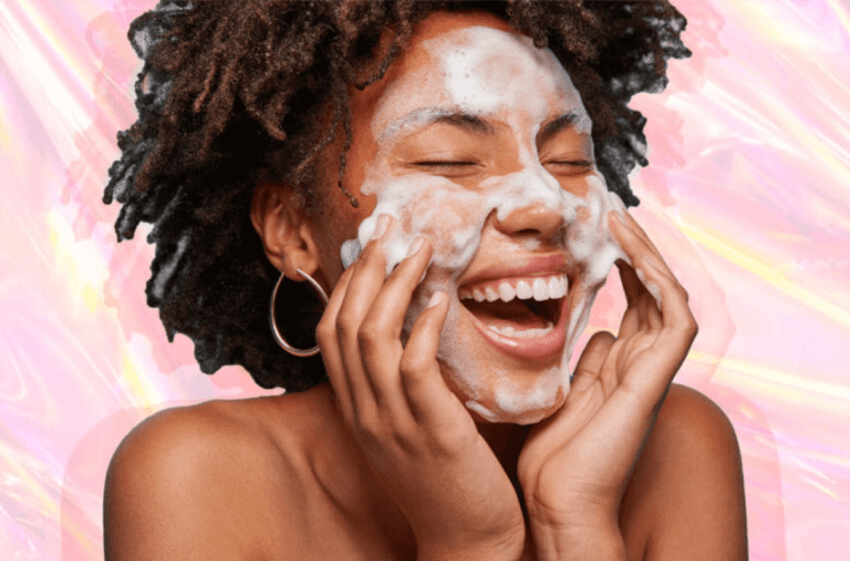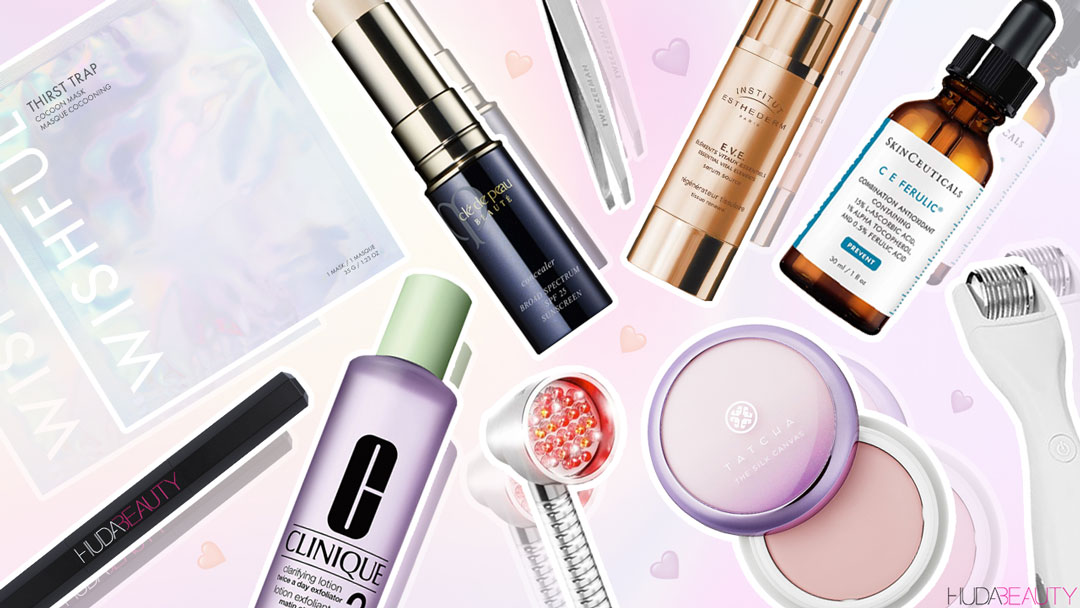The Best Retinol Alternatives For Sensitive Skin & Retinol Newbies

Retinoids have been the crown jewel of the skincare world for a solid couple decades, and there’s zero sign of a slowdown. As celebrated as it is, though, there’s one downside: this diva of an ingredient is not exactly known for being gentle. While there are plenty of elegant formulations out there that make retinol easier to use, the ingredient can still pose issues – especially if you have sensitive skin.
“The problems with retinol and retinoic acid are the associated irritation, [which] can afflict even the most sparse user,” says Dr. Anthony Rossi, a board-certified dermatologist who’s recognized internationally as a leading expert on sensitive skin. “Some people are very sensitive to retinoids and can experience severe irritation, dryness, and peeling.”
We’ve got some good news, though. A fleet of retinol alternatives have come to market, and they’re pretty legit. If you’ve found yourself saying, “Ow!” or “No, thanks,” after trying traditional retinoids, these backup options – which include pro-retinol and bakuchiol – are definitely worth a go, especially if you have sensitive skin or are new to retinoids. They’re also an excellent skin-transforming alternative for those who are pregnant or breastfeeding.
What is Bakuchiol?
Head to India, and you might come across the bright green babchi plant, which has long been used in Ayurvedic traditional medicine. Also referred to as Psoralea corylifolia, this lil cutie is where we get bakuchiol extract. (By the way, it’s pronounced bah-KOO-chee-ul.)
“Bakuchiol is a plant-derived compound that has antioxidant abilities, as well as anti-inflammatory effects,” says Dr. Rossi. “It has received notice in skincare because in clinical studies it has been shown to improve signs of aging and, unlike retinol, does not have the associated retinoid irritation or dermatitis.”
There have even been studies comparing the two ingredients (like this 2018 clinical trial published in The British Journal of Dermatology) that demonstrate similar results when using either ingredient. Research is still underway, but so far, the results have been very promising.
Try it Yourself:
 Source: Herbivore, Good Molecules, Bakuchiol
Source: Herbivore, Good Molecules, Bakuchiol
One of our favorite bakuchiol products is Herbivore Botanicals Bakuchiol Retinol Alternative Smoothing Serum, $54, a super gentle serum that’s been formulated for all skin types. It also contains tremella mushroom to help hydrate skin and blueberry stem cells for an extra boost of antioxidant power. Some other options include Good Molecules Bakuchiol Oil Blend for Oily Skin, $10, a calming, hydrating formula that helps target acne, and The INKEY List’s Bakuchiol Retinol Alternative Moisturizer, $10.
What is Pro-Retinol?
Long story short: pro-retinol is a less potent version of regular retinol. It’s either a fat-soluble compound derived directly from retinol, or it combines a fatty material (like a botanical oil) with pure retinol to dilute it. Pro-retinol goes by a handful of different names in ingredient lists, such as retinyl palmitate, beta carotene, trans-retinoic acid ester, and even clever names such as “retinyl sunflowerate.”
Like retinol, pro-retinol addresses signs of aging – including fine lines, wrinkles, laxity, and discoloration – by promoting skin cell turnover. Also, it’s almost always formulated in moisturizing products, which means you’ll get the added effect of plumper, hydrated skin. Because it’s a milder version of retinol, you’re less likely to experience any of the annoying side effects.
Try it Yourself:
 Source: Josie Margan, Glossier, Boscia
Source: Josie Margan, Glossier, Boscia
Lots of brands have their own version of a pro-retinol product. For instance, Josie Maran’s Argan Beta-Retinoid Pink Algae Serum, $68, utilizes pro-retinol from pink algae, and Glossier’s Universal Pro-Retinol, $35, combines pure retinol with sunflower seed fatty acids. Boscia does the same in its Pro-Retinol Repair + Renew Waterless Advanced Treatment, $48, (they call their version “retinyl sunflowerseedate”). As a bonus, the formula also has bakuchiol
Other Retinol Alternatives for Sensitive Skin
The above retinol alternatives are notably gentle, but if you’re seeking something even milder, than you’ve got a few more options.
- Rosehip Seed Oil: Rosehip seed oil is rich in vitamin A, which is where retinol is derived from. You’ll often find it in multi-oil blends, or you can buy the pure stuff. We like The Ordinary 100% Organic Cold-Pressed Rose Hip Seed Oil, $10.
- Bidens Pilosa Extract: Also known as the blackjack plant, this herby flower from the daisy family is considered a supremely gentle ingredient with anti-aging benefits. It’s the hero ingredient in Liz Erle’s Superskin Alt-Retinol Skin Paste, $53, and you’ll also find it in bareMinerals Ageless 10% Phyto-Retinol Night Concentrate.
- Adenosine: This water-soluble ingredient occurs naturally in the body and is derived from yeast. Ideal for all skin types, it’s been shown to reduce the look of fine lines and wrinkles while also soothing skin. You’ll find it in Paula’s Choice RESIST Anti-Aging Eye Gel, $34.
Of course, you can always incorporate additional proven anti-aging ingredients into your skincare regimen to help combat premature signs of aging and protect your skin. Those include niacinamide, peptides, ceramides, vitamin C, and alpha-hydroxy acids (AHAs) among others.
Have you tried any of these retinol alternatives before? If so, how did they stack up against retinol? And if you haven’t tried them, would you consider doing so? Let’s discuss in the comment section below.
Disclaimer: Every product we review has been independently selected and tested without bias by our editorial team. We never take payment to review products; although some brands allow affiliate links, so we may earn a commission if you purchase a product by clicking on one of our links.























Leave a comment